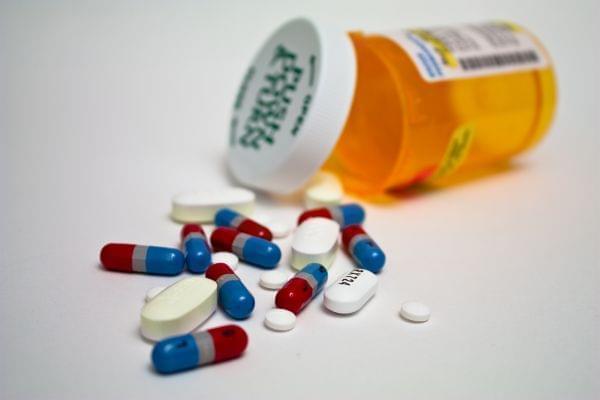Opioid Epidemic Hits Illinois Hardest In The Southern Region

The opioid epidemic is hitting the southern part of Illinois the hardest. Flickr/ep_jhu/CC BY-NC-ND 2.0
BELLEVILLE, Ill. (AP) — A newspaper investigation shows that Illinois' 16 southernmost counties are hardest hit by the state's opioid epidemic.
Illinois Department of Public Health data show opioids contributed to nearly 1,200 overdose deaths in the state in 2016. Studies show the opioids' dangers stem from the length and strength of prescriptions.
There were about 3 million Illinois patients annually from 2008 through 2016 who used Schedule II opioids, the most addictive type legally available, The Belleville News-Democrat reported.
Illinois Prescription Monitoring Program data on such patients during that time frame show the number of prescriptions across the state increased 18 percent, growing nearly every year, from 1.77 to 2.09 per patient. Prescriptions in the southern 16 counties grew about 30 percent, from 2.16 to 2.75 per patient.
The length of pain treatment across Illinois grew nearly 50 percent, increasing almost each year.
The length of pain treatment in the southern 16 counties was consistently three weeks longer than the rest of Illinois. The average length of pain treatment in deep southern Illinois grew from 46 days to 69, but in the rest of the state, the time grew from 27 days to 39.
There has been speculation that the 16 southernmost counties filled prescriptions for more opioids because of a larger elderly population, but the data don't contain patient age.
Those counties include Hardin, Pope, Saline, Gallatin, Franklin, Massac, Union, Williamson, Alexander, Jackson, Johnson, Perry, Pulaski, White, Randolph and Hamilton counties.
Dr. Jeff Ripperda, who practices in Murphysboro in Jackson County, said an eight-hour course on addiction treatment challenged him to rethink his own prescribing habits.
"It took me objectively examining my own habits against the data, admitting that I was actually doing my patients a disservice with my previous practices, telling this to the patients when I announced a change in approach, and dealing with some backlash because of the change," he said.
Links
- St. Joseph Woman Shares Story Of Opioid Addiction
- Lawmakers Explore Medical Marijuana As Opioid Alternative
- Opioids Pose Threat To K-9 Officers; ‘We Have No Idea’; Author Steve Hamilton
- Preventing Deaths From Opioid Overdose; Cubs vs. Cards Rivalry Exhibit
- Medical Care In Illinois Prisons; Treating Opioid Addiction
- When Cracking Down On Opioids Means Tougher Access For Sickle Cell Patients

